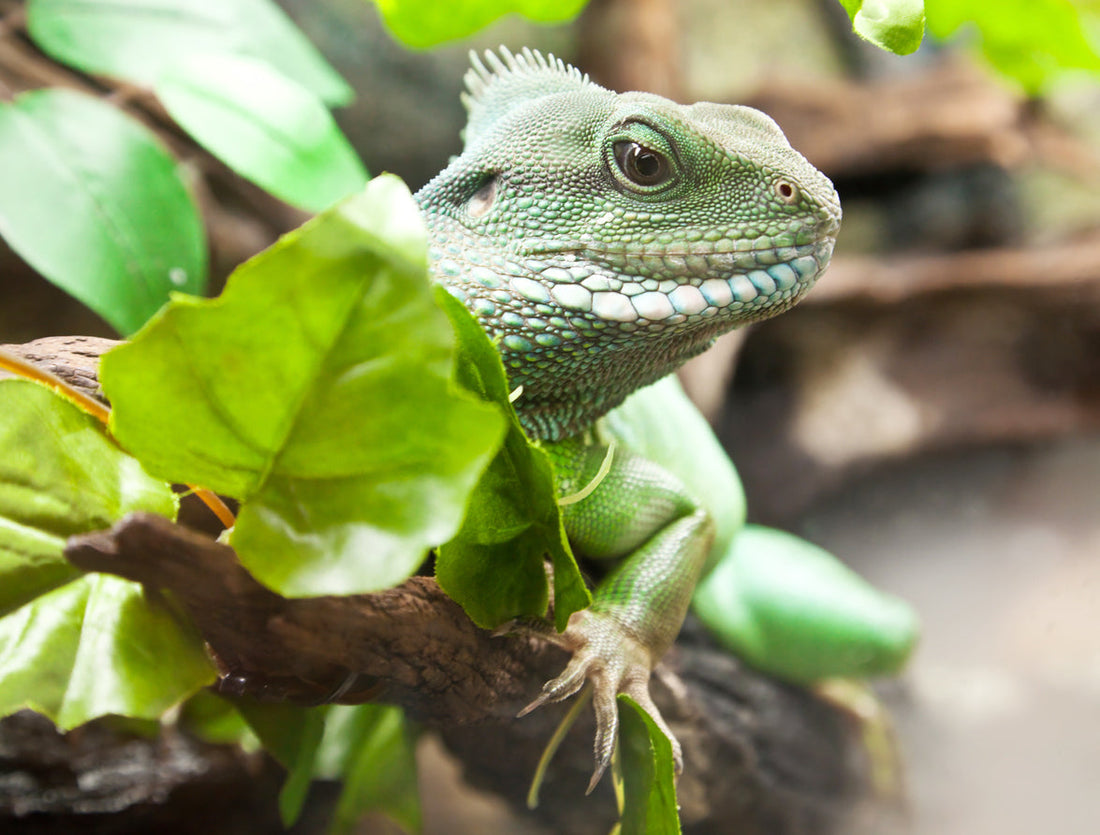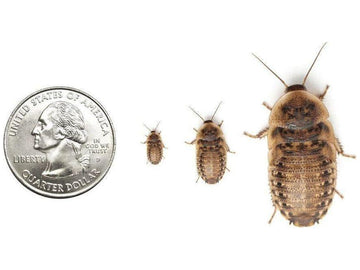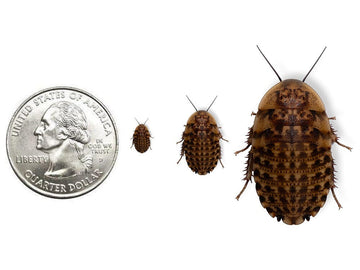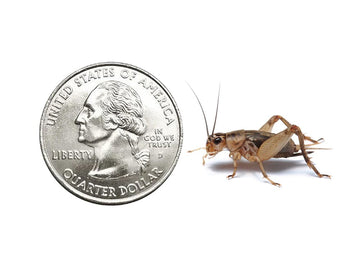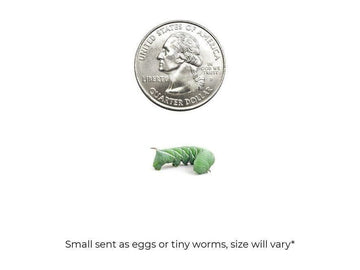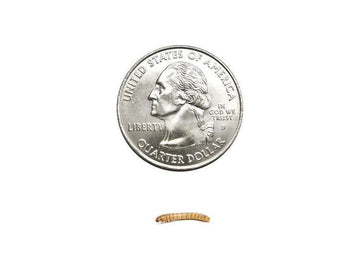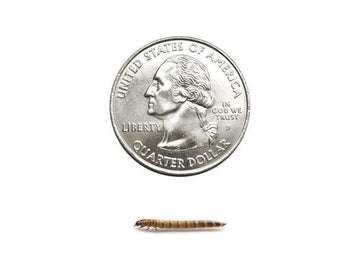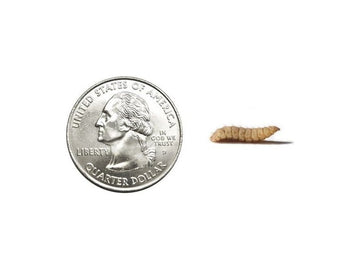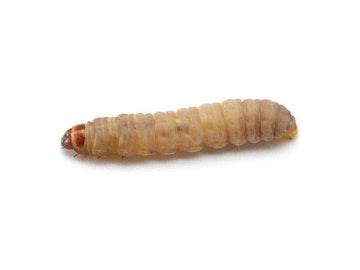Does your Chinese water dragon seem to insist on eating the same handful of foods, ignoring everything else? If this is the case you’re probably feeling frustrated and worried about your pet’s health. Fortunately, this problem usually has a clear cause, and once you find that cause, it can be solved!
Feeding Too Often
How often do you feed your Chinese water dragon? Does the schedule you’re using look like this?
- Hatchlings (<3 months old) — Insects daily
- Juveniles (<16” long) — Insects and salad every other day
- Subadults and adults (>16” long) — Insects every 3-5 days, salad daily
If you’re feeding your Chinese water dragon more than outlined above, it’s possible that you’re feeding them too much. A hungry reptile isn’t a picky reptile, you see. It’s an evolutionary survival mechanism: In the wild, food is hard to find, so a Chinese water dragon that is picky about what to put in their stomach is more likely to starve to death. In other words, if they want to survive, they have to eat what’s available.
If overfeeding is your problem, the easiest solution is to correct your feeding schedule. This should help your dragon feel more hungry when mealtime comes around. Occasionally skipping a feeding, whether that’s salad, insects, or both, can also help keep your dragon motivated to eat.
Too Much Meat
This is related to the above problem. Even if you are feeding your Chinese water dragon on an appropriate schedule for their age, if you’re not using the right proteins, then it’s possible that your dragon is too full to be interested in salad. Meat and whole prey such as mice are higher in calories than insects, so offering them frequently can not only reduce your dragon’s appetite for other foods, but also contribute to obesity.
Too Many Treats
It’s always fun to give treats to our pets! Chinese water dragons always look so happy when going after pinky mice or demolishing a piece of mango. However, if your dragon is used to getting lots of treats on a regular basis, they can quickly lose their taste for normal, healthier foods — just like you’d probably rather have chocolate and bacon all the time, but they’re still not very good for you.
Keep the treats to a minimum in order to maintain your dragon’s interest in foods that are lower in fat and/or sugar. One small treat 1x/week is plenty. Exercising more self-control in this aspect will also help guard against tooth decay, obesity, and organ dysfunction. If you still crave that kind of interaction with your Chinese water dragon, try hand-feeding your dragon rather than offering their food in a bowl!
Limited Diet
Alternatively, maybe the problem is that your Chinese water dragon’s diet has stagnated. Chinese water dragons in particular are notorious for demanding a varied diet. If you’ve been feeding your dragon the same crickets and superworms from the pet store and collard greens and spring mix from the grocery store, your dragon is probably so used to getting the same old thing every day that it has lost interest in eating.
Limited diet is a problem because variety is necessary to balanced nutrition. When your dragon eats the same handful of foods every time, eventually it’s likely to develop a nutritional deficiency. Removing familiar foods from your pet’s routine and developing a rotation of different foods is likely to stimulate your dragon’s appetite back to normal. You can get ideas for different foods to try with your Chinese water dragon in our Chinese Water Dragon Care Sheet!
Note, however, that each Chinese water dragon is an individual, and sometimes they simply don’t like the taste of a particular food. If your dragon consistently rejects something new, even when their favorite food has been removed from the rotation for a while, that means you should try something else.
Illness
Chinese water dragons, like other reptiles, are very skilled at hiding when they’re not feeling well. This helps them avoid predators in the wild, but as pets, this talent tricks their owners as well. One of the first ways that bearded dragons “tell” their owners that they’re not feeling well is through sudden, seemingly-unexplained appetite loss.
If your pet has suddenly become very picky about what they’ll eat, and none of the above solutions are working, check your pet’s husbandry. Are the basking or air temperatures suddenly too cool? Has your UVB lamp expired? (UVB lamps need to be replaced every 12 months.) Is there something else that stands out to you when you review our Chinese water dragon care sheet?
If you still can’t find an explanation, take your Chinese water dragon to an experienced reptile veterinarian for examination.

